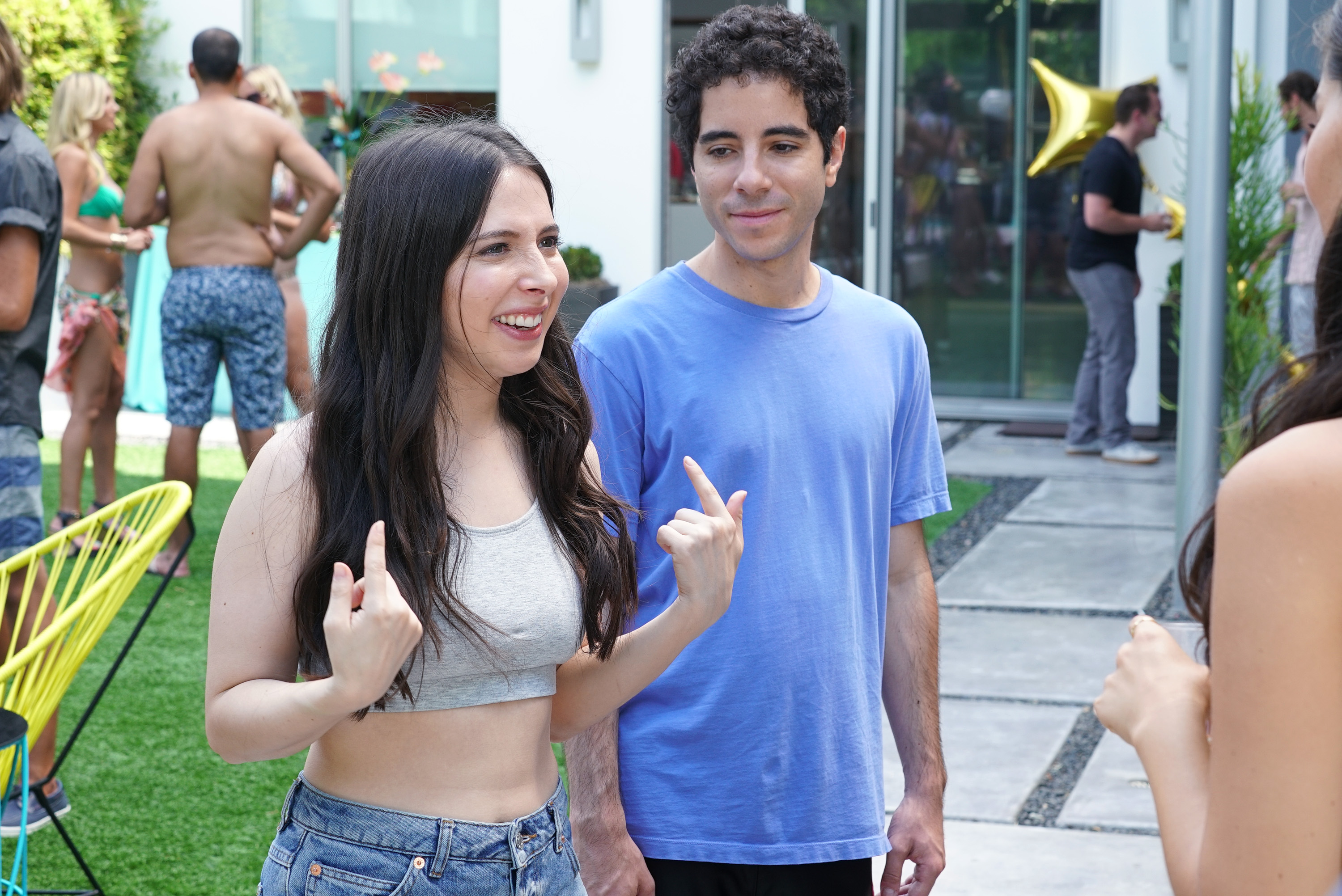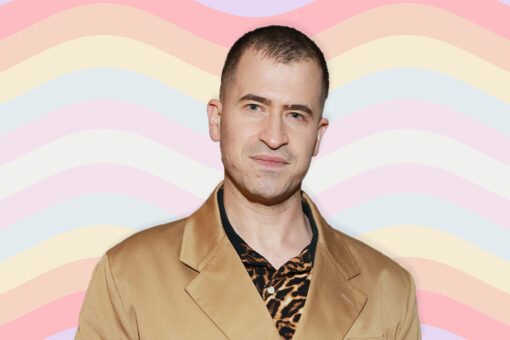It looks like Alone Together could shape up to be the cool, Jewy millennial show of 2018.
Last Wednesday, the new comedy series premiered on Freeform (the channel formerly known as ABC Family, for those of you who, like me, woke up today and were surprised it’s no longer 2015). Its two co-creators are also its stars: Benji Alfalo and Esther Povitsky, whose breakout role as clingy uber-millennial Maya on Crazy Ex-Girlfriend put her on my radar (although she first appeared, unnoticed by me, playing the handbells in an episode of New Girl). Between Povitsky and some of the other producers — Andy Samberg, Akiva Schaffer, and Jorma Taccone, AKA the two-thirds Jewish, three-thirds ridiculous comedy trio The Lonely Island — there is a lot of potential for Jewy comedy here.
It’s sharp, funny, modern, and very millennial. Reminiscent of Difficult People, Billy Eichner and Julie Klausner’s wonderful show whose life was tragically cut short, it, too, is a buddy comedy centered around a male-female best-friend duo of two Jewish comedians who share the names of the real-life comic actors who play them. It, too, features protagonists who are, uh, difficult people. Compared to Difficult People, a masterpiece of snarky Jewish comedy about comedy (and the only mainstream TV show I can think of that featured not one but two scenes centered around dybbuks), Alone Together has big shoes to fill.
But Alone Together differs from Difficult People in a few significant respects. First, it’s set in Los Angeles rather than New York City. When it comes to modes of secular Jewish identity, the East Coast/West Coast divide is an interesting subject; for instance, Crazy Ex-Girlfriend made much of protagonist Rebecca’s move from East to West, as did one episode of Difficult People in which Billy considers moving to the Golden State. The East Coast Jewishness of a show like Broad City is very different than that of a show like Transparent or Curb Your Enthusiasm. Which brings me to another point: Alone Together could be a full-length big sister to Cazzie David’s excellent web series Eighty-Sixed, which is itself a sort of millennial version of Curb Your Enthusiasm (Cazzie is Larry’s daughter).
QUIZ: Which Jewish Woman From TV Are You?
Second, Alone Together’s male-female duo is an odd-couple, would-be heterosexual pair, whereas the fact that Billy is gay sets up a different dynamic for Julie and Billy’s friendship in Difficult People. Esther is a woman interested in men and Benji is a man interested in women, but Esther would “rather let an entire Greyhound bus spit in my mouth than have sex with Benji.” The fact that they have a platonic friendship is essential to the show’s premise. Each becomes jealous when the other has a romantic or sexual achievement. But make no mistake; they are not jealous in the romantic sense, of each other’s partners, but rather just jealous that one is getting action while the other is not.
At the end of the pilot episode, after both of their romantic and professional (and, in some cases, both) shenanigans having failed, they end up together in a restaurant, sitting on the same side of the booth, because “it’s just easier to share food that way,” as Esther explains earlier in the episode. Will they end up sleeping together by the end of this season (or the second season, because Alone Together has already been renewed)? The pistol is on the wall, so if the Alone Together writers are of the Chekhovian school, they’re bound to.
The show establishes its Jewishness through simple references. A non-Jewish friend comments on the formality of Benji’s attire: “What’s up with that shirt? You going to a funeral? You sitting shiva?” Esther explains to Benji, “I taught him Jewish stuff.” There’s a storyline in which Benji finds out that the beautiful blonde woman he is seeing funds her luxurious lifestyle not by nannying but escorting, and Esther decides to sign up. Her escort name? Alicia Silverstein. Her escort outfit, Benji tells her, “looks like the Jewish version of Annie, the musical.” It’s the kind of knee-jerk insider comedy that’s funny, for no real reason, if you’re a Member of the Tribe.
The show feels Jewish as well in its characters’ general ambivalence, anxiety, and neurosis, which characterize so much of Jewish American pop culture. But perhaps the show’s ambivalence is just as attributable to its millennial vibe as to its Jewishness. After all, ambivalence is supposedly the calling card (or, perhaps more appropriately, Snapcode) of us millennials (along with avocado toast and ruining various industries).
This ambivalence is evident especially in the pilot’s treatment of self-esteem and social standards: Does its characters’ extreme, socially mediated self-deprecation (see: Esther deciding not to eat a mini burger only because she sees beautiful, well-dressed women looking askance at the caloric treats) serve as a parody of image- and status-obsessed LA? Or does its constant self-consciousness perpetuate the very issues it purports to satirize? (See also: the show’s generally unhealthy relationship with food and body size, which Margaret Lyons thoughtfully critiqued. The disordered attitude towards food is, unfortunately, relatable for many, and the pilot exploits it to shallow comic effect, rather than making use of the opportunity to explore it thoughtfully.)
The answer is probably both: self-aware, Alone Together lightheartedly critiques a culture that it nevertheless participates in. Esther and Benji’s social facade relies on the illusion that they are effortless — “Esther’s way of being cute is like, not trying at all,” Benji claims — when in fact the opposite is true. Esther, in particular, is obsessed with figuring out how to be a “hot girl.” We roll our eyes at these shallow anxieties even as we sympathize.
But maybe I’m taking all of this too seriously: Esther and Benji’s show is way too chill for this kind of analytical treatment. At least, that’s what they want you to think.



